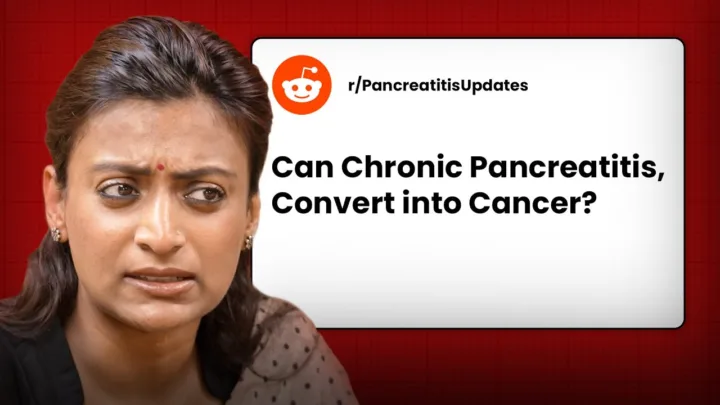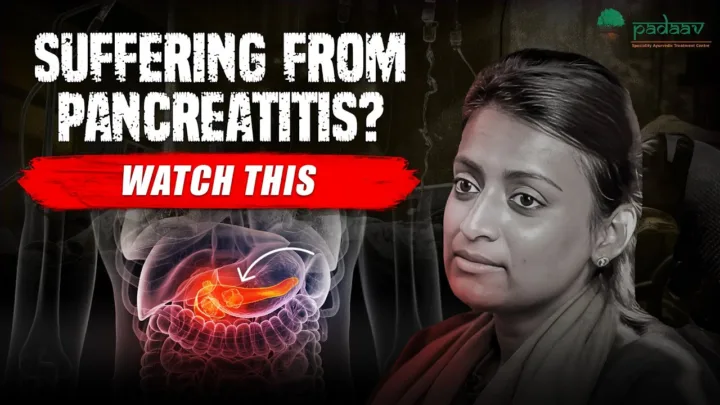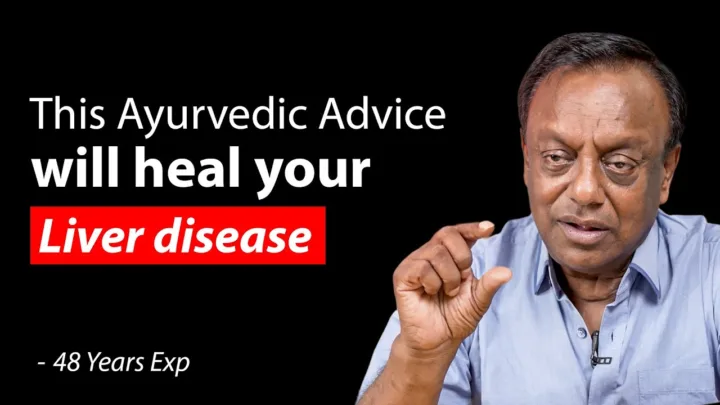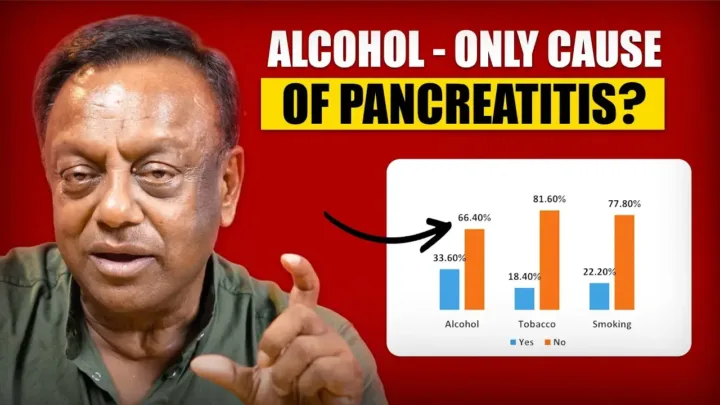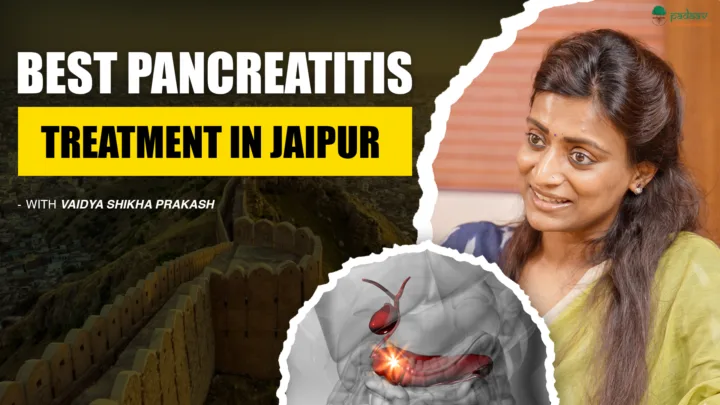Pancreatitis, a disease of the pancreas, is often described as a “killer disease” at Padaav Ayurveda, not just because of its physical toll but for its devastating impact on a person’s body, mind, and finances. While many are aware of its acute pain and debilitating symptoms, the true danger often lies in its silent, progressive nature, which can go unnoticed for years.
The Peril of a “Normal” Life
One of the most concerning aspects of chronic pancreatitis is the possibility of it progressing without noticeable symptoms. As highlighted by patients at Padaav Ayurveda, it is not uncommon for individuals to experience severe attacks that eventually subside, leading to years of an apparently symptom-free existence. This period of relief, however, can be deceptive. As Vaidya Balendu Prakash explains, this lack of pain may indicate that the pancreas has been so severely damaged (over 90%) that it can no longer produce the enzymes that trigger the painful inflammatory attacks.
This phenomenon turns the disease into a “silent killer,” progressing slowly and undetected. The patient, feeling well, may believe they are cured, while the underlying damage continues to worsen, potentially leading to complications like pancreatic cancer. The importance of regular and specific diagnostic tests, such as the Fecal Elastase Test, is crucial in such cases to assess the extent of pancreatic function, even in the absence of pain.
Beyond Alcohol: The Overlooked Lifestyle Triggers
While alcohol and smoking are commonly linked to pancreatitis, the discussions at Padaav Ayurveda reveal a more nuanced and surprising reality. Vaidya Balendu Prakash’s research, documented in his book “Granthi Ki Gutthi,” highlights that lifestyle factors are far more prevalent causes. For instance, 93% of pancreatitis patients studied were found to have a habit of staying up late, while 70% regularly skipped breakfast.
This data underscores a critical shift in understanding the disease’s etiology. Pancreatitis is not just a disease of a specific group; it is a direct consequence of modern living of chronic stress, disrupted sleep cycles, and poor eating habits. The medical perspective must expand to recognize that physical and mental stress are significant contributing factors, often more so than genetic or environmental ones.
The Patient’s Journey: A Chronicle of Misdiagnosis and Financial Strain
The patient accounts shared at Padaav Ayurveda paint a vivid picture of the challenging and often frustrating journey faced by those with chronic pancreatitis. Many patients recount years of living with undiagnosed symptoms, being treated for gastritis, or having their pain dismissed as “gas” by general physicians. The reliance on symptomatic treatment, such as pain relievers, without a definitive diagnosis leads to prolonged suffering and an inability to address the root cause.
This journey is also a significant financial drain. As one patient noted, an average of ₹6 lakh (approx. $7,200) is spent by patients before they even arrive at Padaav Ayurveda, highlighting the immense financial burden of repeated hospitalizations, scans, and ERCP procedures. This financial toll, combined with the physical and mental stress, can be devastating for young, working-age individuals whose lives and careers are put on hold.
Padaav Ayurveda: A New Paradigm of Care
At Padaav Ayurveda, the approach to pancreatitis is a testament to its unique clinical methodology, which is a departure from conventional medicine and traditional Ayurvedic texts. The focus is not on simply treating symptoms but on stopping the disease’s progression and restoring the patient’s quality of life.
Key aspects of this approach include:
- Targeted Treatment: Rather than focusing on symptomatic relief, the treatment aims to prevent further progression of the disease.
- Dietary Management: Unlike the restrictive diets often prescribed, Padaav Ayurveda’s diet is designed to be easily digestible while providing essential nutrients. For instance, fermented dairy products like curd and paneer are included, while milk, which requires more digestive effort, is avoided.
- Holistic Lifestyle Changes: The treatment is not merely a course of medication; it is a lifestyle transformation. Patients are educated on the importance of regular meals, sleep hygiene, and stress management, empowering them to take control of their health.
- Realistic Expectations: Patients are given a hopeful but realistic outlook. The goal is to halt the disease’s progression and enable a life of comfort and peace, rather than promising a complete “cure” for irreversible damage.
Question: If my Fecal Elastase Test is very low, but I am not having any pain, what does this mean?
Vaidya Balendu Prakash: A very low Fecal Elastase Test result indicates that your pancreas has been severely damaged, often by more than 90%. When the pancreas is so damaged, it is no longer capable of producing the enzymes that cause the intense, painful attacks. This is why you feel no pain. However, the disease is still present and progressing. This is the “silent killer” aspect of the disease.
Question: My diagnostic reports seem to contradict each other, and my condition was misdiagnosed for years. Why does this happen?
Vaidya Balendu Prakash: The field of pancreatitis diagnosis can be challenging, as it is a rare disease. Many doctors, even gastroenterologists, may not have enough experience with this specific condition. Additionally, there can be inconsistencies between labs and diagnostic centers, making it difficult to get an accurate reading. We always recommend getting a second opinion or having your films reviewed by an expert to ensure a correct diagnosis.
Question: Is it true that chronic pancreatitis will inevitably lead to pancreatic cancer?
Vaidya Balendu Prakash: According to allopathic medicine, the risk of developing pancreatic cancer is higher for people with chronic pancreatitis, with estimates ranging from 20% to 55%. However, our data from treating over 2,300 patients since 1997 shows a much lower incidence. Only one of our patients has developed pancreatic cancer and passed away. Our focus is on stopping the progression of the disease, which also drastically reduces the risk of it turning into a more serious condition.
Question: Is it safe for a person with pancreatitis to have dairy products like paneer and curd? I was always told to avoid them.
Vaidya Balendu Prakash: The belief that dairy products must be avoided stems from the idea that they require more digestive effort. However, curd and paneer are fermented products. They are essentially pre-digested and do not require the same amount of pancreatic enzymes to break down as milk does. At Padaav Ayurveda, we have found that these products can be well-tolerated and are an important source of nutrition. The focus should be on what the body can digest, not on blanket restrictions.
Question: Will I need surgery in the future to deal with my pancreatic stones?
Vaidya Balendu Prakash: Our treatment is designed to make surgery unnecessary. While the stones that have already formed may not disappear, our medication and diet help to halt the progression and prevent new stone formation. The goal is to make it possible for you to live a comfortable life without the need for invasive procedures.
A Call for Change and a Path Forward
In the words of Vaidya Balendu Prakash, the philosophy is to “live with what’s broken” and prevent it from getting worse. This is not about accepting defeat but about embracing a new way of living that is mindful, peaceful, and in harmony with the body’s needs. The journey at Padaav Ayurveda is a step towards healing, not just the body, but the mind and life itself. It’s a call for each of us to listen to our bodies, to respect its limits, and to adopt a lifestyle that supports, rather than strains, our health. This is the essence of a truly successful treatment not just a temporary fix, but a permanent transformation towards well-being.

